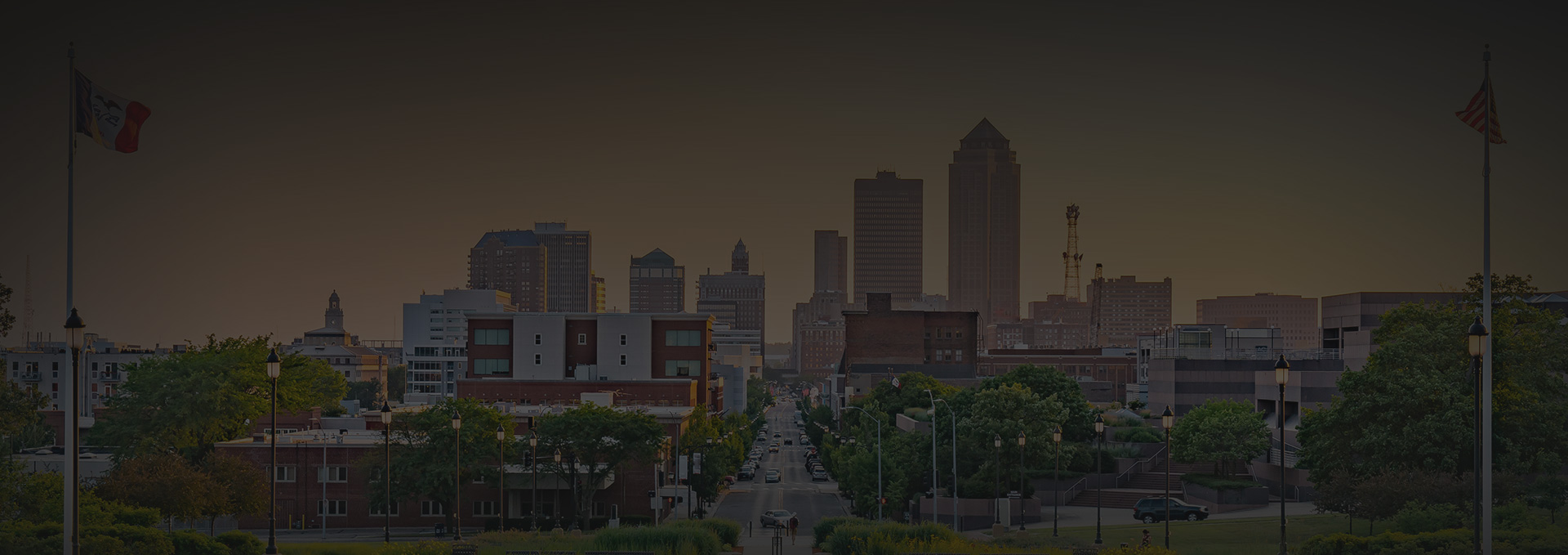
Des Moines Bus Accident Lawyers
Injured in a Des Moines City Bus Collision or School Bus Crash? Find Legal Help
Public transportation is an important service for our city, one that many Des Moines residents value. Unfortunately, sometimes public or private bus services cause crashes with serious consequences. If you’ve been injured a bus accident and it wasn’t your fault, you have the right to demand compensation for the costs you incurred.
If you want to pursue financial compensation from the at-fault party, contact LaMarca Law Group, P.C. We can provide legal representation and fight to get you the money you deserve. We know the struggle you’re facing because of your injuries. When you hire us, we’ll use our resources, experience, and knowledge to get you the financial award you need to recover.
Whether you use the bus as an efficient and cost-effective option to get to work or the grocery store, or you trust school buses to transport your children to school, you should be able to ride safely. If you don’t take the bus, you should be able to trust that you can drive next to one without risking a crash.
Unfortunately, sometimes drivers make mistakes, or mechanical failures cause buses to veer into traffic. When that happens, you can hold the responsible person or business accountable for their careless actions.
Call LaMarca Law Group, P.C. at (515) 705-0233 to speak with one of our Des Moines bus accident lawyers and find out how we can help you recover the money you’re owed.
What Makes Bus Accidents Dangerous?
Despite the safety features that protect bus riders, some of the same things lead to devastating injuries and property damage when they do crash.
- Size and weight: When a bus collides with another vehicle or pedestrian, the injuries are more severe, and they’re more likely to cause fatalities. Buses are much larger and heavier than most passenger vehicles, so the impact causes significant damage.
- Lack of seatbelts and structural reinforcement: Most buses don’t have seatbelts. If there’s a rollover crash, occupants are at risk of being thrown out of the bus or against the bus walls. Bus roofs aren’t reinforced like car roofs, so they can crumple and cause crush injuries.
- Speed: When a bus impacts a moving vehicle, its occupants face lower g-force than usual. But when a bus collides with a stationary object, the g-forces are potentially very high, leading to serious and fatal injuries to the occupants.
Identifying the Causes of Bus Accidents
Some common causes of bus accidents include:
Bus Company Negligence
Federal and state regulations require bus companies to promptly perform regular maintenance and repair damage to ensure that their buses are safe to operate. If they fail to repair a mechanical problem or replace a damaged part, they could be liable for any collision they cause.
Sometimes, bus companies fail to take due care when they hire their drivers. If they hire someone and fail to train them properly or hire someone who lacks a commercial driver’s license, they could be liable for a crash.
Bus Driver Negligence:
When bus drivers behave irresponsibly and fail to operate their bus safely, they can be held liable for their negligence.
Examples of negligence include:
- Texting while driving
- Speeding
- Failing to obey traffic laws
- Driving recklessly
- Driving under the influence of drugs or alcohol
Commonly Asked Questions about Bus Accidents
How can I prove negligence in a bus accident case?
What types of compensation can I seek after a bus accident?

How Common Are Bus Accidents?
Buses are typically a safe form of transportation. Bus drivers must carry a commercial driver’s license that requires extensive training. Unless their employer was negligent when they hired them, they have the qualifications to operate a large vehicle like a bus and know what to do if there’s an emergency.
Federal and Iowa state regulations require anyone who operates a bus to understand safety procedures that keep occupants, drivers in other vehicles, bicyclists, motorcyclists, and pedestrians out of harm’s way.
Purposeful bus design also makes them safer than passenger vehicles in most situations. Features that protect occupant safety include:
- Size: Buses are big, so people in other cars and walking across the street can see them better than cars or motorcycles.
- Lights and markings: Buses are designed to be visible in different weather conditions thanks to easy-to-see markings and lights.
- Height and weight: Buses are high off the ground and heavy, reducing the chance of a rollover. They can’t decelerate quickly when they collide with another vehicle or object, which reduces the g-forces felt by occupants.
- Compartmentalization: Most buses don’t have seatbelts because of protective compartmentalization. Most bus seats incorporate durable, protective foam on both their front and back to hold passengers in place in the event of a crash.
- Speed: Most bus accidents occur at low speeds because they tend to travel on roads with low speed limits. Many bus routes avoid the highway, reducing the chance of crashes above 50 mph. Intercity buses and charter buses are the exceptions.
We know that you need time and space to recover from your bus crash. We’ll handle everything to do with your claim on your behalf so that you can focus on healing and moving forward.
Common Injuries Victims of Bus Accidents Sustain
Whether you’re a passenger on the bus, in another vehicle, on a bicycle or motorcycle, or a pedestrian, you could suffer from the following:
- Whiplash: The momentum of a crash can cause the head to quickly move forward then backward, resulting in an injury to the neck.
- Spinal cord injuries: The initial impact of a bus accident and subsequent impacts with the window or another object can damage the spinal cord. Some injuries can be repaired by surgery or physical therapy, but some result in permanent disability and paralysis.
- Traumatic brain injury: Any head impact can cause a traumatic brain injury. TBIs disrupt the brain’s normal function, resulting in headaches, vision loss, impaired motor skills, and more.
- Broken bones: Broken long bones require surgery and extensive physical therapy. Compound and other severe fractures cause bleeding and can puncture internal organs.
- Internal bleeding: When a damaged organ bleeds internally, it can cause a life-threatening problem for the victim. A ruptured organ can lead to sepsis, and even death.
- PTSD: Post-traumatic stress disorder causes severe stress, fear, anxiety, and depression.
What Should I Do if I’m Injured in a Bus Accident?
- Call 911 and wait for law enforcement to arrive at the scene. They will perform an investigation and write a crash report.
- Write down the names and phone numbers of witnesses to the accident, the bus driver, and other occupants on the bus.
- Take photos of the crash site and damage to all vehicles involved.
- Go to the doctor to treat your injuries. Follow their orders and continue with medical care until you recover or get released.
- Hire a Des Moines bus accident attorney to help you with your case.